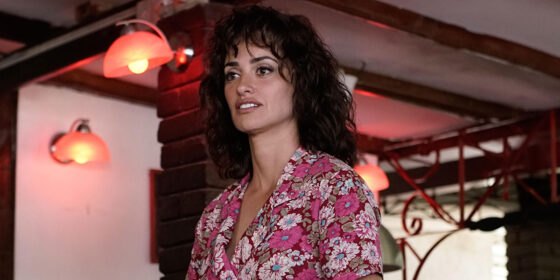Wasp Network (Olivier Assayas, France/Brazil/Spain/Belgium) — Special Presentations

By Clara Miranda Scherffig
There is certainly fertile ground for a film in the spy-riddled landscape between Cuba and Miami during the early ’90s. Think of the Pulitzer-winning photograph of six-year-old Elián González being forcibly seized by armed soldiers, and you have the setting for Olivier Assayas’ new film. Wasp Network narrates the heyday of Castro’s espionage program of the same name. Young spies who saw themselves as dissidents would be sent to the United States with a twofold mission: to infiltrate local organizations, and to investigate the anti-Castro terrorists attacking Cuba’s tourist economy. Some seized the opportunity for personal advancement by dealing drugs across South America, while some formed unofficial humanitarian associations in order to help fellow countrymen escape the regime.
Wasp Network follows the latter group of good guys, focusing on pilot René González (Édgar Ramírez) and his wife Olga (Penélope Cruz), strategy chief Gerardo Hernandez (Gael García Bernal), and the vain and materialistic Juan Pablo Roque (Wagner Moura), who notoriously swam seven hours to reach a pre-prison Guantanamo. The plot thickens when the FBI enters the picture, co-opting Roque as a double agent. But the plot thread is frayed, very frayed, and Assayas’ writing and direction does a poor job in both telling and showing the facts—particularly as the film is inspired by the real escapades of the Cuban Five.
Over an hour into the film, split screens more evocative of Austin Powers than Mission: Impossible are dropped in with a voiceover (in Spanish-accented English, for some reason), to give us a confused spy-splanation of the setting. In an attempt to gather the various dangling threads in advance of the final two acts still to come, Wasp Network rushes us from the personal story of Gonzalez towards the collective drama of international politics. The occasion to reconstruct the thrilling and trashy aesthetic of ’90s Florida (remember Miami Blues or The Birdcage?) is missed, with costumes and props feeling more like expensive, hip vintage pieces than tools for historical mimesis. It’s too bad for the stellar cast, who are sacrificed for the film’s admirable but undeveloped entry points: entertain telling a lesser-known story and draw parallels with todays’ global migration debates. The comparison with Steven Soderbergh’s The Laundromat, also showing in Special Presentations, won’t help Wasp Network: good cinematic storytelling must go past the complexity and intrigue of the subject matter to give us a new reason, a new way to care about the issues at stake.
Clara Miranda

